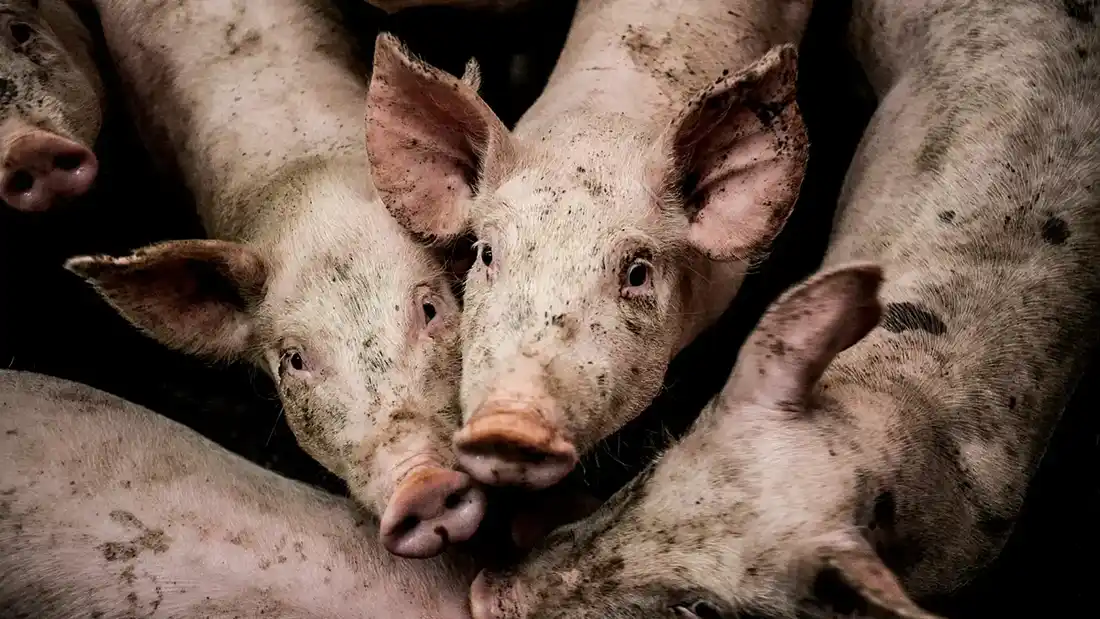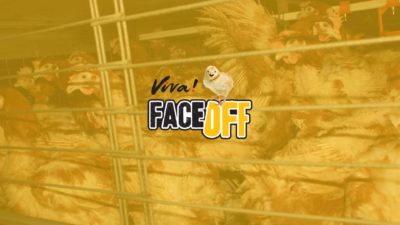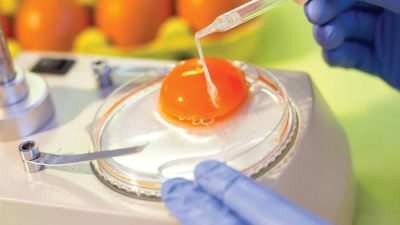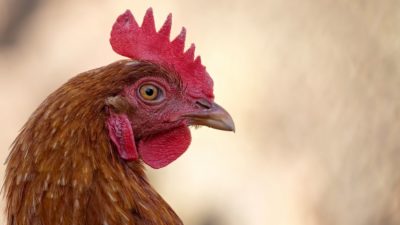Happy Egg Company
Viva! investigates: The Happy Egg Company
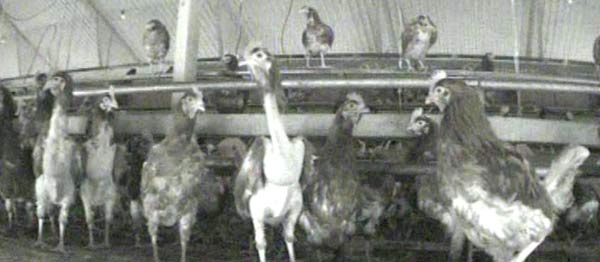
Contented hens, pecking at the ground and enjoying a dust bathe in the sun – that’s free-range egg production. It is if you believe the TV adverts. A major Viva! investigation into the egg industry shows a very different story – one of disease, incarceration, mutilation, short lives and electric shocks.
In one of the most ambitious undercover operations Viva! has ever undertaken, we have laid bare the awful truth of one of the biggest UK consumer deceits.
Contented hens, pecking at the ground and enjoying a dust bathe in the sun – that’s free-range egg production. It is if you believe the TV adverts. A major Viva! investigation into the egg industry shows a very different story – one of disease, incarceration, mutilation, short lives and electric shocks.
In one of the most ambitious undercover operations Viva! has ever undertaken, we have laid bare the awful truth of one of the biggest UK consumer deceits.
As consumers move away from cruel battery eggs and buy free-range, Viva! discovers that they are still… Unhappy Eggs.
A Viva! undercover investigation
Not very Noble Foods
You probably haven’t heard of Noble Foods but they are Britain’s biggest egg producer and supply almost every supermarket. They claim to be the ‘progressive’ arm of the egg industry and supply 60 million eggs a week under stores’ own labels or their own Happy Egg label.
Noble Foods – and others like them – have taken advantage of consumers’ growing concern for animal welfare and free-range is now big business. With sales around £2bn a year, output now matches that from caged systems because we falsely believe that free-range equals high welfare.
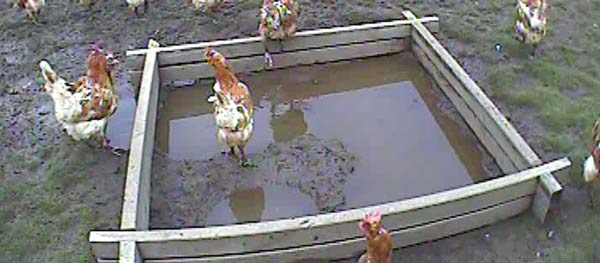
So much for enrichment. We found dust baths sodden with rain water
The Happy Egg Company’s TV advert feeds that belief, showing hens in sunshine, exploring verdant vegetation and even taking a ride on a farmer’s quad bike. They paint a picture akin to a holiday camp for hens. If the plants we visited are typical, they are more of a death camp.
Free-range prisons
The irony of free-range egg production is that its success because of ethical concerns has led to increased stocking densities and intensification. Our investigation shows they are nothing short of factory farms.
Hens are not placed in the free-range units until they are 18-21 weeks old, during which time they are kept in intensive sheds in their thousands. This conditions them to stay indoors, something which is encouraged because of the ‘hassle’ of collecting eggs from outside. In their first weeks, young birds were shocked into submission by electric wires running along the feeders and drinkers to prevent them from defecating on their food.
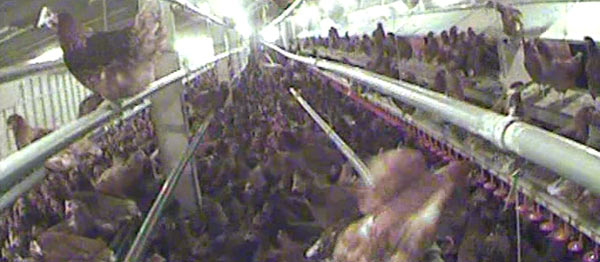
Some of the hens we filmed never went outside
This is against Freedom Foods guidelines. Sorry, I forgot to say that RSPCA’s Freedom Foods is supposed to monitor these farms. Whilst we saw their guidelines often flouted and ignored, the fact remains that this objectionable system as a whole is rewarded with approval by an organisation set up to stop animal abuse.
Home for these hens are cavernous, industrial sheds with small ‘pop holes’ down the sides. Even when open, many birds are seemingly so traumatised by their first few months of life indoors that they never venture out.
Add to this the highly hierarchical nature of hen society, where one bird will not want to cross another’s territory, plus unnatural flock sizes in the thousands and it’s a wonder that any go out at all.
Healthy Hens?
One shed was infested with red mite, which can cause stress, anaemia and even death. Our footage shows many bald and bedraggled birds and worker confirmed that there are big problems in another shed where hens “peck and kill each other.” We filmed plastic yellow bags full of dead hens being carried away. And this despite birds having the ends of their beaks seared off (beak-trimmed) at a few days old to prevent pecking.
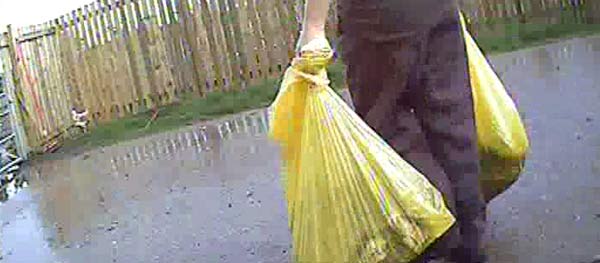
Even though hens are killed at only 72 weeks’ old, premature death was not uncommon at the farms we filmed at
In a world removed from the TV ads, at one site birds had to paddle across stretches of dirty standing water simply to get outside. Some of the so-called ‘enrichment’ elements, which supposedly make life better for the birds, were useless. Dust-bathing pits, for example, were submerged in inches of water in mid-summer.
A short life
The life of a Happy Hen, it seems, is far from happy – it is also far from long. They are slaughtered at just 72 weeks so once the weeks indoors after hatching are subtracted, they spend barely more than a year in this supposedly free-range system. Hens from one shed were to be slaughtered even younger because they weren’t making enough money.
Entire sheds are emptied of hens in one go to make way for the next flock. The final insult for these ‘spent’ layers is a gruelling 214 mile trip to the ironically named Jolly’s slaughterhouse in Lincolnshire.
This, sadly, is the reality of large-scale, free-range egg production in Britain. Battery cages and barn systems are, of course, no better which is why we advocate avoiding eggs altogether.



